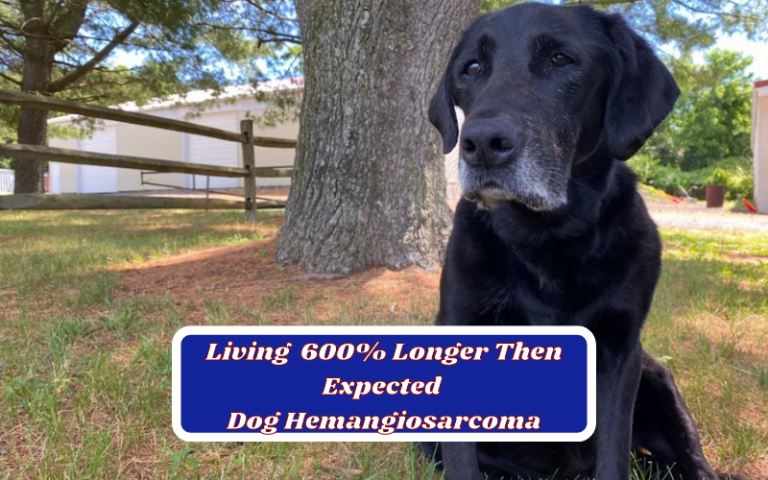How To Choose The Best Protein For Your Dog

By now, I’m sure you are aware of how important protein is for your dog’s health. But, do you know what kind of protein, or or how much of it you should feed your dog and that too much protein can actually be harmful?
Well, don’t worry because in this one, we’ll reveal the best protein for your dog and so much more.
Now don’t get it twisted, it makes sense to feed your dog high protein food, and it is encouraged to make sure your dog is getting enough protein.
But what is the best way to determine what is the healthy amount of protein for your dog. Continue reading to find out the ideal protein intake for dogs.
Ready to get started? Good, let’s go!
How Much Protein Do Dogs Need
Now this will vary based on whether your have a puppy or adult dog but, you should aim for a minimum protein content of 18 to 29 percent in your dog’s diet.
A minimum of 22.5 percent dry matter protein is required in food for growing puppies and nursing mothers. Once more, find out from your vet how much protein is ideal for your dog’s age and activity level.
Adult dogs require 18 to 25 percent protein, whereas growing puppies require 25–32% on a dry matter basis. These levels support optimal growth.
Now, if you have a very active dog like a Belgian Malinois or a Labrador Retriever, then you will most likely be looking to feed them a formula with more proteins than average. This is because they will need this as they’re burning more calories and need it to build muscle.
Now, some veterinarians will also advise against giving senior dogs and dogs with kidney disease a diet that is high in protein. When in doubt, it’s best to consult your veterinarian to make sure your dog is receiving the right nutrition.
Too Much Protein For Puppies and Dogs
If large breed puppies are given food that is too high in protein, it may cause them to gain weight too quickly, which could lead to abnormal joint development and increase their risk of developing conditions like arthritis in the future.
So make sure to not be overfeeding your dog, and or giving them a formula that has too much protein (that they don’t need.)
Dogs Are Omnivores But They Need Meat

The truth is, dogs are omnivores. They will mostly eat meat, but most dogs will eat almost anything you put in front of their face. When you compare that to cats, cats are mainly carnivorous.
But I thought dogs where carnivorous?
Well when eating a mixture of meats and plants, dogs technically fall under the omnivore chain. When dogs eat both these meats and plants it usually allows them to meet their nutritional needs.
But the cold hard fact is dogs must consume enough protein in order to survive and this type of protein needs to be meat. This is because protein supplies essential amino acids that dogs are unable to produce on their own.
Chicken and fish are the two most common types of meat because they’re very lean, but your dog should also eat red meat.
Raw Meat Protein For Dogs
We also encourage you to look into feeding your dog raw meat. Now, some might be totally against this, but we encourage you to do your own research and make your own choice for your dog. Raw meat is something that has been debated for decades. Some love giving it to there dogs, others hate it.
Just like anything there are pros and cons. You can read our opinion on feeding your dog raw meat.
If you do decided to feed your dog raw meat for its proteins content, it should include some of the following such as, raw bone, raw offal and beef cuts with the heart and liver (which are organ meats.) These offer the highest levels of protein and vitamins and offer the most nutritional value.
High Protein In Dog Food
Dog foods that are promoted as being high in animal protein can be beneficial depending on your dog. Now that is not to say protein from other sources is not good and should be avoided. We are believers in making sure your dog is getting protein from meats (Chicken, Fish, Turkey, Meat, etc.)
What are the Best Proteins for Dogs?
That leads us to our next topic, what are the best types of protein for dogs. You will notice there a tons of ways for animals and humans to get proteins in to there diets. But when it comes to our furry friends, these are the types of healthy protein sources you should be looking for:
- Chicken
- Beef
- Fish (Salmon, Whitefish, etc)
- Turkey
- Lamb/Mutton
- Duck
- Venison
- Rabbit
- Eggs
Additionally, meals made from muscle meat and its byproducts, including hearts, livers, kidneys, and lungs, are all excellent sources of protein and are also recommended.
Protein and Preventing Overeating
Protein is great not only because of the health benefits it provides, but also because it can help maintain your dogs ideal body weight.
Chicken, fish, turkey are all frequently used in dog food recipes for weight management and are an excellent way to help your dog shed those extra pounds while also providing him with the nutrition and protein he requires.
Proteins also helps fill your dog up so they do not feel as hungry throughout the day as well as helping them build strong muscles and bones.
Understanding High Protein Dog Food and Food Allergies
Gluten and grains frequently receive a bad rap for causing allergies and skin issues in dogs.
The best way to approach this is by speaking to your vet to understand if your dog actually does have a food allergy and if there is something they should be avoiding.
Now there are some protein sources that are less likely to cause allergic reactions in your dog if he has allergies. These include:
- Duck
- Pork
- Lamb
- Elk
- Bison
These meats are considered game meats, and dogs with allergies usually react better to them. There are a few options on the market that contain these types of formulas with these meats, but you can always pick them up at your local food store and make your own blend of dog food (meat, sweet potatoes, etc.)
Other Types Of Proteins That Are Good For Dogs
Some other types of proteins that are very good for your dog like peas, lentils, and chickpeas are examples of plant foods that are high in protein and easy for dogs to digest. These plant-based protein sources have been used by dog food manufacturers for many years, and dogs in India have been eating vegetarian diets for hundreds of years.
We recommend these types of proteins as add ons, or secondary types with the main type of proteins for your dog coming from meat.
Some other high protein options also include:
- Plain, low-fat Greek yogurt.
- Cooked white or sweet potatoes.
- Cooked or raw fresh vegetables, such as carrots, corn, and broccoli.
- Cooked chicken, fish, turkey (human food)
Types Of Protein And Foods to Avoid

Generally speaking, foods with corn or meat by-products as the first ingredient are not the best. The first ingredient of the first five ingredients in your dog’s food should always be protein. The energy and nutrients that dogs consume come from both plant and animal sources because they are omnivores. The development of their muscles and connective tissues, a strong immune system, energy, and healthy skin and nails all depend on protein.
Make sure the food you purchase is free of fillers and has one of those meats above as its main source of proteins, fats, and carbohydrates. You should stay away from phrases like “all meat.”
Is All Protein The Same?
No, all protein is not the same. Protein quality varies depending on the source and where it comes from. For example, something we recommend to avoid is something labeled as meat-by product. Something we would recommend is chicken liver.
Frequently Asked Questions About Your Dogs Protein
Is 30% protein too much for dogs?
Food that has 30%-35% protein is considered on the higher end, but is not something to worry about Food containing between 25% – 30% are considered average. 20 – 25 are considered on the lower end. Below 20% is low and usually made for dogs who have an underlying medical issue or a prescription.
Is dog food with more protein better?
When properly administered and advised by a veterinarian, a high-protein diet can have a positive impact on your dog’s health in a number of ways. A healthier, shinier coat, better skin health, the development of lean muscle, and a stronger immune system are a few of these advantages. High-protein diets can also be advantageous for many senior dogs.
Which protein is best for sensitive dogs?
Lamb for puppies or adult dogs with sensitive stomachs or food allergies, is an excellent option.
Is canned tuna good for dogs?
In moderation and only if you select the canned tuna that is packed in fresh water (not saltwater or oil.) It’s also crucial to read the label to ensure that the canned tuna hasn’t been salted (added.) Fish is a common ingredient in dog foods because of its high protein and omega-3 fatty acid content which provides many benefits. Because it could result in a variety of health issues, you shouldn’t feed saltwater fish to your dog.
Conclusion
Protein is a necessity when it comes to feeding your dog. It will allow them to get all the vital nutrients and allow them to grow
Without it, your dog runs the risk of not getting the vitamins, nutrients, and amino acids they need in order to survive.
We encourage you to look for a formula that consists of enough protein for your dog, there age and there activity. Every dog will be different and will require a different amount of protein depending on these factors. As always, speak to your vet for more insights.
We hope you were able to find the best protein for your dog, how much protein they need, and everything in between. At Jacktra our mission is to help all the dogs, cats and other animals out there who may be abandoned or who are stuck in a shelter. Every time you use our site, interact with our site, and search with us, we’re able to help those millions of dogs in need.





